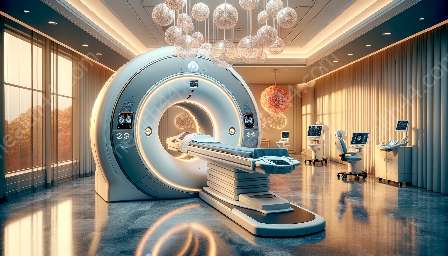Medical imaging devices and medical equipment have seen significant advancements in recent years, with electrocardiogram (ECG) machines playing a crucial role in enhancing patient care.
In this comprehensive guide, we will explore the world of ECG machines, their compatibility with medical imaging devices, and their role in enhancing medical devices and equipment.
The Role of ECG Machines in Medical Imaging
Electrocardiogram (ECG) machines are medical devices that record the electrical activity of the heart over a period of time. They are an essential tool in the diagnosis and monitoring of various heart conditions, such as arrhythmias, myocardial infarctions, and congenital heart defects.
When it comes to medical imaging, ECG machines play a vital role in providing valuable information to complement other imaging modalities, such as echocardiography and cardiac MRI. The synchronization of ECG signals with imaging techniques allows for accurate assessment of cardiac function and helps in the diagnosis and treatment of heart-related issues.
Functionalities of ECG Machines
ECG machines come with a range of functionalities that make them indispensable in the medical field. They are capable of capturing and displaying electrical activity from various leads, providing insights into the heart's rhythm, conduction, and overall function.
Additionally, modern ECG machines are equipped with features such as automated interpretation algorithms, wireless connectivity, and compatibility with electronic medical records (EMR) systems. These capabilities enable seamless integration with other medical devices and equipment, creating a cohesive healthcare ecosystem.
Compatibility with Medical Imaging Devices
ECG machines are designed to complement and integrate with medical imaging devices, such as ultrasound machines, CT scanners, and MRI systems. The synchronized acquisition of ECG data with imaging procedures enhances the diagnostic accuracy and provides comprehensive insights into cardiac health.
Moreover, advancements in technology have facilitated the development of hybrid systems that combine ECG monitoring with imaging modalities, offering a unified approach to cardiac assessment and diagnosis.
Benefits of ECG Machines in Healthcare
The integration of ECG machines with medical imaging devices and other medical equipment offers numerous benefits to healthcare providers and patients. Some of the key advantages include:
- Improved Diagnostic Precision: ECG machines enhance the accuracy of cardiac assessments by providing synchronized data with imaging modalities, leading to more precise diagnoses.
- Streamlined Workflow: The seamless compatibility between ECG machines and medical imaging devices streamlines the clinical workflow, saving time and improving efficiency in patient care.
- Enhanced Treatment Planning: The comprehensive data obtained from ECG machines, coupled with imaging findings, aids in developing tailored treatment plans for patients with heart conditions.
- Interoperability: ECG machines are designed for interoperability, allowing seamless integration with electronic health record systems and other medical devices for comprehensive patient care.
Future Innovations and Trends
As technology continues to advance, the future of ECG machines and their compatibility with medical imaging devices holds promising developments. Innovations such as artificial intelligence algorithms for ECG interpretation, portable ECG monitoring devices, and enhanced connectivity with imaging systems are expected to further empower healthcare professionals in delivering precision medicine.
Conclusion
Electrocardiogram (ECG) machines have become indispensable in the realm of medical imaging and equipment. Their seamless compatibility with medical imaging devices and other medical equipment not only enhances the diagnostic capabilities in cardiac care but also contributes to streamlined workflows and improved patient outcomes. With ongoing advancements and future innovations, ECG machines are poised to continue playing a pivotal role in modern healthcare, ensuring comprehensive and integrated cardiac care for patients.


